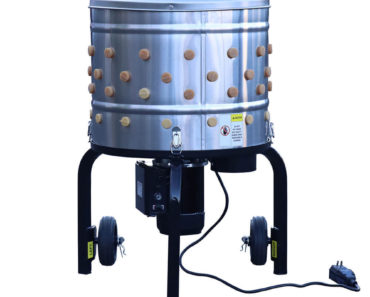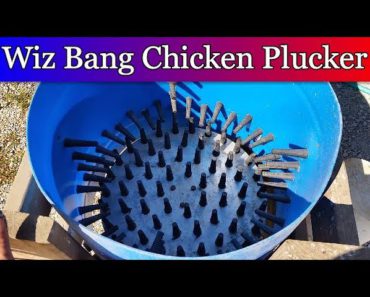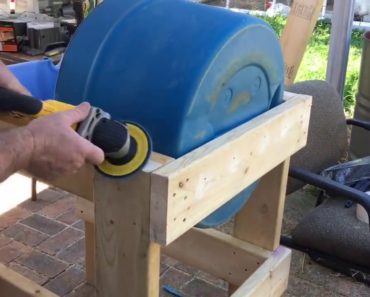Contents

We’ll delve into the essential factors to consider when determining the right amount of food to provide for your beloved flock. Discover the best feeding practices and tips to ensure optimum nutrition and healthy growth. Let’s dive in and feed those chickens right! Stay tuned for more insights on .
How Much Do I Feed My Chickens for Optimal Chicken Plucker Results?
When it comes to achieving optimal results with your chicken plucker, one crucial factor to consider is the diet and nutrition of your chickens. Feeding your chickens the right amount of food is essential for their overall health and plucking efficiency. Here are some important guidelines to follow:
1. Calculate the feed requirements: To determine how much to feed your chickens, you need to consider their age, weight, and activity level. Different breeds and sizes of chickens may have varying feed requirements, so it’s important to understand the specific needs of your flock.
2. Provide a balanced diet: A balanced diet is crucial for the proper growth and development of your chickens. It should consist of high-quality commercial chicken feed that contains the necessary nutrients, such as protein, vitamins, and minerals. Additionally, providing access to fresh water and additional treats like greens and grains can contribute to their overall health.
3. Allow for free-choice feeding: Allowing your chickens to have access to food throughout the day is known as free-choice feeding. This ensures that they can eat whenever they feel hungry and helps prevent overeating or undernourishment. However, be cautious not to leave the feed exposed to pests or extreme weather conditions.
4. Monitor and adjust: Regularly monitor your chickens’ body condition and weight to ensure they are neither overweight nor underweight. Adjust the feed quantity accordingly to maintain their ideal body condition. Overfeeding can lead to obesity, which can affect their plucking efficiency, while underfeeding may result in malnutrition.
5. Seek professional advice: If you’re unsure about the appropriate feed quantity or have concerns about your chickens’ nutrition, consult with a poultry nutritionist or veterinarian who can provide personalized guidance based on your specific circumstances.
Remember, a well-fed and healthy chicken will yield optimal results when it comes to plucking. By providing a balanced diet, monitoring their intake, and making adjustments as needed, you can ensure the best outcomes for your chicken plucking endeavors.

How much should I feed my chickens?
Feeding your chickens the right amount of food is essential for their health and productivity. Here are some important factors to consider:
- Determine the appropriate daily feed intake:
The amount of feed a chicken requires depends on several factors, including its age, breed, size, and activity level. Consult a poultry nutritionist or refer to the guidelines provided by the feed manufacturer to determine the appropriate daily feed intake for your chickens.
- Provide a balanced diet:
A balanced diet is key to keeping your chickens healthy. It should consist of a combination of grains, protein sources, vitamins, and minerals. Commercial feeds designed specifically for chickens usually provide the right balance of nutrients. However, if you prefer to formulate your own feed, make sure to consult an expert to ensure all nutritional needs are met.
- Monitor their body condition:
Regularly assess your chickens’ body condition to ensure they are not underfed or overfed. Feel their breastbone (keel) – it should be easily felt but not protruding. Also, check their overall weight – they should have a healthy and consistent weight gain. Adjust their feed quantity accordingly, keeping in mind their specific requirements.
FAQ
How much feed should I provide per chicken when using a Chicken Plucker?
When using a Chicken Plucker, it is important to provide the appropriate amount of feed per chicken for optimal growth and health. The recommended amount of feed varies depending on the age and type of chicken.
For chicks: Typically, chicks should be provided with starter feed for the first 4-6 weeks. During this stage, they should consume around 1/4 to 1/2 pound of feed per day.
For growing chickens: As chickens mature, their feed intake will increase. From 6-20 weeks, they should consume around 1/2 to 1 pound of feed per day.
For laying hens: Laying hens have higher nutritional requirements due to the production of eggs. They should consume about 1/4 to 1/2 pound of feed per day.
It’s important to note that these quantities are approximate guidelines, and can vary depending on factors such as breed, size, and activity level. Monitoring the chickens’ body condition and adjusting the feed amount accordingly is crucial for their overall health and productivity. Additionally, providing access to fresh water at all times is essential for their well-being.
What is the recommended daily amount of feed for chickens being processed with a Chicken Plucker?
The recommended daily amount of feed for chickens being processed with a Chicken Plucker can vary depending on various factors such as the age, breed, weight, and purpose (meat or egg production) of the chickens. However, a general guideline for feeding chickens is to provide about 1/4 to 1/2 pound of feed per chicken per day. This can be divided into two meals, one in the morning and one in the evening. It’s important to ensure that the chickens have access to fresh water at all times. Additionally, it’s advisable to consult with a poultry nutrition expert or veterinarian for specific feeding recommendations based on your specific circumstances.
Are there any specific guidelines for feeding chickens in relation to the usage of a Chicken Plucker?
When it comes to feeding chickens in relation to the usage of a Chicken Plucker, there are a few guidelines to keep in mind:
1. Diet: It is important to provide chickens with a balanced diet that includes a mix of grains, proteins, vegetables, and access to fresh water. A proper diet will ensure that chickens have optimal feather development and overall health, which can enhance the performance of the Chicken Plucker.
2. Quality feed: Using high-quality feed, whether purchased or homemade, can improve the efficiency of the plucking process. The feathers will be easier to remove, resulting in a faster and cleaner plucking experience.
3. Protein content: Including an adequate amount of protein in the chicken’s diet can contribute to healthier feathers. Feathers with good integrity are easier to remove during plucking, reducing the chances of tearing or damaging the skin.
4. Supplements: Some chicken owners choose to include supplements such as calcium or probiotics in their chickens’ diet. These supplements can promote feather growth and overall health, ultimately improving the plucking process.
5. Feeding schedule: Establishing a consistent feeding schedule for your chickens is important to maintain regular digestion and optimal nutrient absorption. Avoid overfeeding or underfeeding, as this can affect their health and feather condition.
Remember, a healthy and well-nourished chicken will have better feather quality, making the Chicken Plucker more effective in removing feathers efficiently.
Determining the appropriate feeding amount for your chickens is crucial to their overall health and productivity in the Chicken Plucker industry. Proper nutrition plays a vital role in their growth, feather quality, and egg production. By considering factors such as their age, breed, and intended purpose, you can tailor their diet to meet their specific nutritional needs. Remember to provide a balanced diet comprising high-quality feeds, supplemented with fresh water, grit, and occasional treats. Regularly monitor their body condition and adjust the feeding regimen accordingly. Additionally, consulting with poultry nutrition experts or experienced farmers can provide valuable insights for optimizing your flock’s diet. Ultimately, a well-fed and nourished flock will not only benefit from improved performance but also contribute to the profitability and success of your Chicken Plucker operation.






